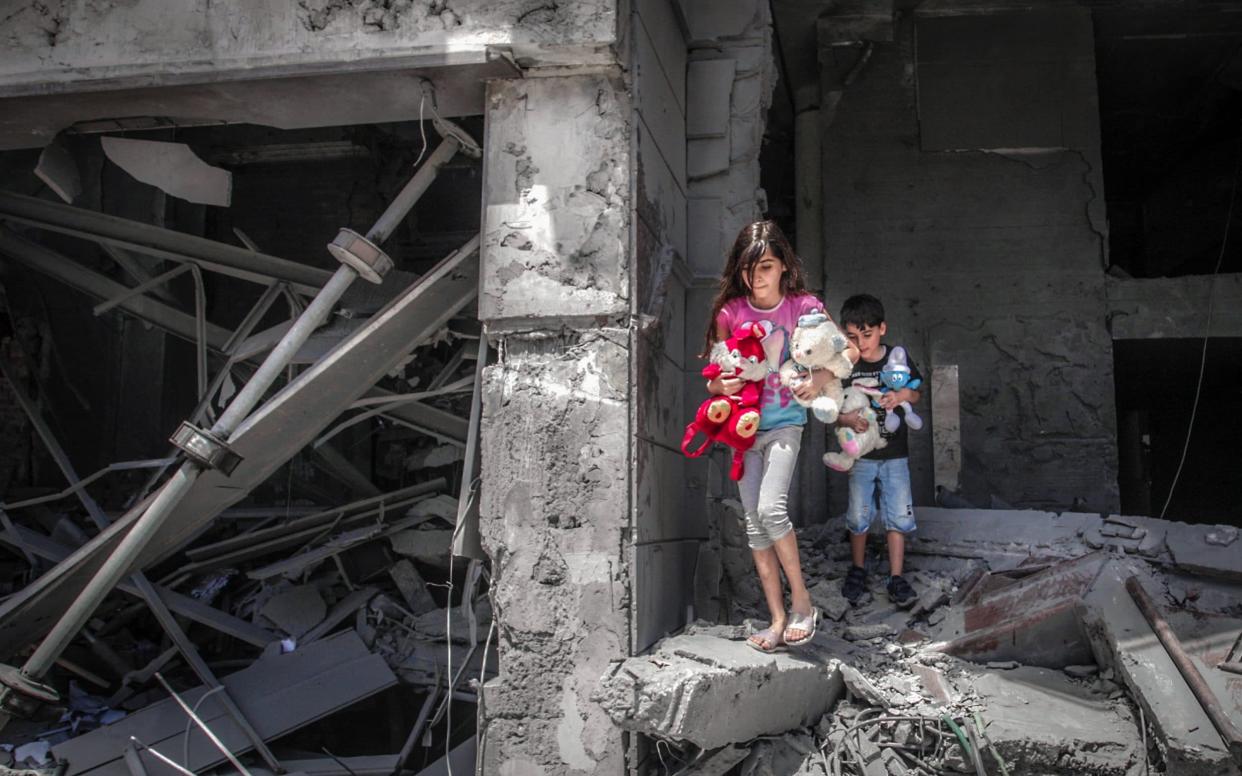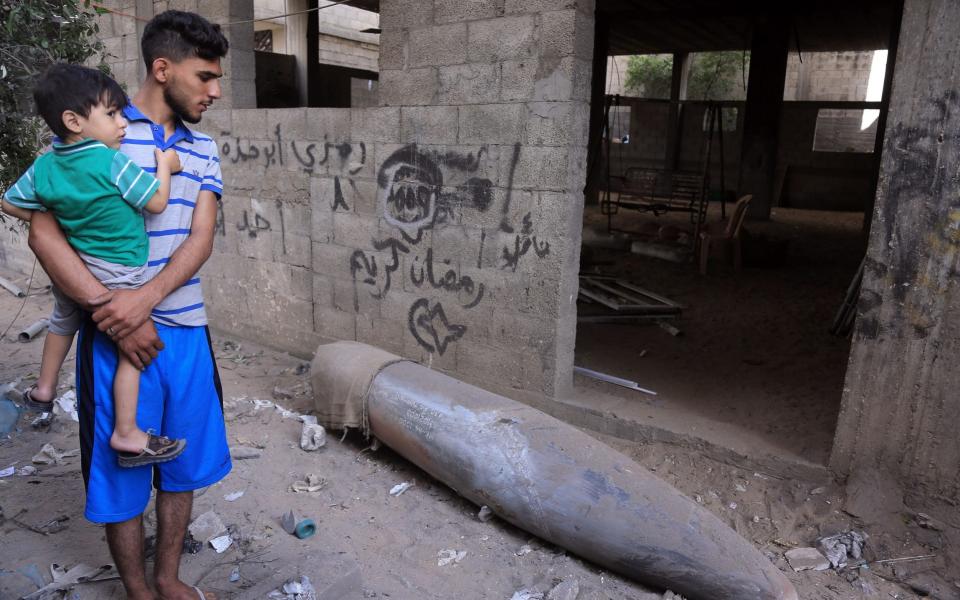Israeli-Palestinian conflict ‘risks spilling into wider region’

- Oops!Something went wrong.Please try again later.
Fighting between Israel and Palestinian militants was creating instability beyond Gaza, the United States’ top military officer warned on Monday, as rockets were fired from Lebanon towards Israel.
The comments came amid reports that Israel was planning to reopen the Kerem Shalom border crossing with Gaza on Tuesday to allow the transfer of "essential humanitarian supplies", such as gas, food and medicine, to Gazan residents, according to the UN.
"We very much welcome the Israeli authorities' opening of Kerem Shalom crossing for essential humanitarian supplies," Jens Laerke, a spokesman for the UN humanitarian agency OCHA, told reporters in Geneva, urging authorities to also reopen the Erez crossing to allow aid workers in.

The border has been closed since last Sunday when fighting first erupted.
Since then, a regional conflagration has become an increasingly likely possibility, according to Mark Milley, the US chairman of the Joint Chiefs of Staff.
Speaking to reporters on Monday before landing in Brussels for a Nato meeting, Mr Milley urged both sides in the conflict to de-escalate, saying: "My assessment is that you risk broader destabilisation and you risk a whole series of negative consequences if the fighting continues.
"There is a significant amount of casualties and I just think that that level of violence is destabilising beyond the limited area of Gaza."
His comments came as rockets were fired from Lebanon towards Israel overnight, the second such incident in a week.
The rockets fell short of the border, leading analysts to conclude they were fired by fringe Palestinian militants rather than the more powerful and technologically adept Lebanese Shia militant group Hezbollah.
Israel responded by firing artillery in the direction the rockets were fired, as the United Nations mission to Lebanon, UNIFIL, called for calm.
UNIFIL said in a statement it had contacted the militaries of Lebanon and Israel, “urging the parties to exercise maximum restraint in order to prevent any escalation of the situation”.
On Tuesday morning, the Israeli military reported that it had shot down an unmanned aerial vehicle that had approached its border from Jordan, without specifying whom it may have belonged to.
Security analyst Michael Horowitz said the drone was more likely to have been launched in Syria rather than Jordan.
On Friday, the Israeli military said three rockets were fired from Syria toward Israel.
While observers say the possibility for regional escalation remains contained, the war shows no sign of ending after eight days of ongoing fighting, despite US president Joe Biden calling for a ceasefire in a phone call with Benjamin Netanyahu, the Israeli prime minister, on Monday.
However, cross-border fighting between Israel and Hamas did appear to abate slightly early on Tuesday, with no fatalities logged in Gaza for the first time since hostilities erupted on May 10, and fewer long-range Palestinian rocket attacks.
Palestinians in Israel, Jerusalem and the occupied West Bank observed a general strike on Tuesday, after Israel carried out further air strikes on Gaza overnight, levelling a six-storey building belonging to the Islamic University.
Gaza health officials say at least 212 Palestinians have been killed in air strikes, including 61 children and 36 women.
In Israel, 10 people, including a 5-year-old boy and a soldier, have died.
European Union foreign ministers were meeting on Tuesday to discuss how to use the 27-nation bloc's political clout to end the fighting.
Emmanuel Macron, the French president, his Egyptian counterpart Abdel Fattah al-Sisi, and Jordan's King Abdullah II were also set to hold talks Tuesday aimed at seeking a ceasefire.
Mr Sisi was currently in Paris for summits on Africa, while King Abdullah would join by video conference, the Elysee said.
Egypt has pledged $500 million for reconstruction efforts in the Gaza Strip. Mr Sisi's office said in a Facebook post on Tuesday that Egyptian firms would contribute to rebuilding.
Egypt has sent some two dozen trucks carrying humanitarian aid and medical supplies to Gaza through the Raffah crossing point. It has also received wounded people from the latest round of violence to be treated in Egyptian hospitals.
Meanwhile, Antony Blinken, the US secretary of state, said on Tuesday that Washington had received further information about Israel's destruction of a Gaza high-rise that housed the local offices of the Associated Press and Al Jazeera news organisations.
But he declined to comment further on it.
"We did seek further information from Israel on this question," Mr Blinken said at a joint briefing with Iceland's foreign minister in Reykjavik. "It's my understanding that we've received some further information through intelligence channels, and it's not something I can comment on," he said.
Israel said its fighter jets struck a multi-storey building “which contained military assets belonging to the intelligence offices of the Hamas terror organisation”.
Sally Buzbee, the Associated Press’ top editor, said on Sunday that they were yet to see any evidence from Israeli officials to justify the bombing and added that her organisation wanted an independent investigation into the incident.
Ron Dermer, a former Israeli ambassador to Washington and now adviser to Mr Netanyahu, told CNN that evidence had been provided to Washington.
"The evidence has already been provided, as I understand it, to US intelligence officials. And that was a site where you had Hamas intelligence in that building, and they were engaged in activity that actually would have, as far as I understand, would have undermined our ability to actually target effectively and also undermined our ability to intercept incoming rockets."

